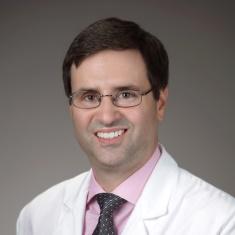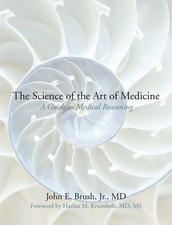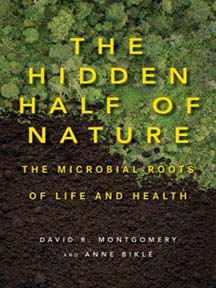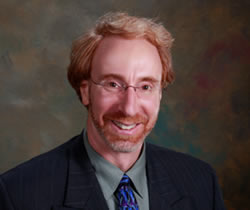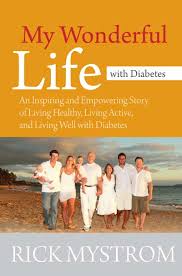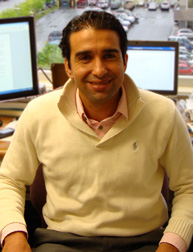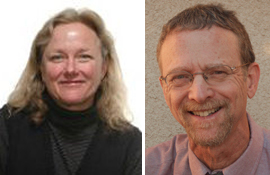Dr. Thad Woodard
Mental Health First Aid
Just as First Aid and CPR help teach people how to aid in a medical emergency, Mental Health First Aid teaches the skills needed to assist someone experiencing a mental health related crisis. Mental Health First Aid courses teach people about risk factors and warning signs for mental health and addiction, and teach strategies for how to help someone in both crisis and non-crisis situations. We'll talk about how to help individuals experiencing these challenges. KSKA: Monday, January 25, 2016, at 2:00 p.m. LISTEN NOW
Glaucoma
Glaucoma is one of the leading causes of blindness in the United States. The most common form of this disease has no warning signs so the loss of vision is so gradual that you may not notice it until it is at an advanced stage. This program will help listeners learn about glaucoma, determine if they are at risk, and learn about the pros and cons of various treatment options. Monday, January 18, 2016, at 2:00 p.m.
Listen Now
Gynecologic Cancer
Each year, approximately 71,500 women in the United States are diagnosed with a cancer of the reproductive organs. One cancer, cervical cancer, can now be significantly prevented with the use of a vaccine against infection with HPV, the human papilloma virus. This program will discuss gynecologic cancers, the cause of cervical cancer and its prevention, and cutting edge immunotherapy of cervical cancer. Monday, January 11, 2016, at 2:00 p.m. DOWNLOAD AUDIO
‘The Science of the Art of Medicine’ by Dr. John Brush
On Line One this week Dr. John Brush, professor of cardiology at the University of Eastern Virginia School of Medicine discusses his book "The Science of the Art of Medicine" written to get doctors thinking about their own thinking in order to make better medical decisions and to get teachers and policymakers thinking about how to assure good medical reasoning. There is a lot to learn about making decisions for all of us to learn from the discussion. KSKA; Monday, Jan. 4, 2016, 2 p.m. and 8 p.m. Download Audio
The Hidden Half of Nature: The Microbial Roots of Life and Health
Much of the extended life span of humans today can be attributed to the control of pathogenic microbes. As a result the promotion of health and attention on chronic disease is becoming the focus of health care. However, along the way we are discovering a new appreciation of the health benefits provided by much more abundant non-pathogenic microbes that evolved with us and make up about 2 % of our weight. December 21, 2015 Download Audio
Foot and ankle problems
Dr Ken Swayman will be taking your questions about any problems you might be having with your feet or ankles. He is a consultant and speaker to many groups and organizations in Alaska, and is an Affiliate Professor and Consultant Team Physician for the University of Alaska, Anchorage. Monday, December 14, 2015, at 2:00 p.m.
Download Audio:
Palliative Care and Cancer
Each year roughly 3,700 Alaskans hear the words: “You have cancer.” Managing the physical and emotional symptoms of a cancer diagnosis can be challenging for patients and their families. Palliative care provides a team-based approach that improves quality of life by addressing these symptoms and treating the whole person, not just their disease.
KSKA: Monday, Dec. 7, at 2:00 and 8:00 p.m.
Download Audio
John Patrick on ‘Health Attitude’
On the next Line One we'll dive into a discussion on the cultural and technological barriers to more affordable, accessible and effective health care in the U.S. Our guest is Dr. John Patrick, author of "Health Attitude," a book delving into the complexities of the health care industry.
KSKA: Monday, Nov. 23, at 2:00 and 8:00 p.m.
Download Audio:
Colon Cancer
We have discussed colon cancer before but it’s been awhile since we looked at it from the surgeon’s point of view. On this program, join Anchorage colorectal surgeons Drs. Kerrie Bossard and Dan Rossi in a discussion about colon cancer and the role of surgeons in this and other colorectal diseases.
KSKA: Monday, July 20, at 2:00 p.m. and 9:00 p.m.
Listen now:
Former City Mayor Rick Mystrom & 50 Years of Experience Living With Type 1 Diabetes
Former Anchorage mayor Rick Myrstrom has lived with Type 1 diabetes for more than 50 years. He believes he's actually healthier than he would have been had he not developed diabetes. Learn what he means by that on the next Line One.
KSKA: Monday, July 6, at 2:00 p.m. and 9:00 p.m.
Listen now:
Internet Safety for Parents & Kids
"The Internet is a rewarding place for both kids and teens, but the potential risks to privacy and personal safety are real," according to the American Academy of Pediatrics. On the next Line One, we'll discuss these warnings with the officers of the APD cybercrimes division.
KSKA: Monday, June 29, at 2:00 and 9:00 p.m.
Listen now:
What everyone needs to know today about HIV/AIDS
Many individuals treated for HIV infection are now living to a near normal life expectancy, an enormous change since this illness was first coming to awareness in the 1980’s. Who becomes infected, when, and how has changed as well. This program will discuss what we all need to know today about HIV/AIDS.
KSKA: Monday, June 22, at 2:00 p.m. and 9:00 p.m.
Listen now:
Breastmilk Sharing – What’s Safe?
"Breast is best," goes the common advice for new mothers - but what if a mother's own breastmilk isn't available? Is it safe to feed your infant milk from a friend, or even a milk bank? Tune in on the next Line One to learn more.
KSKA: Monday, June 15, at 2:00 p.m. and 9:00 p.m.
Download Audio
Pediatric Dermatology
Skin is the largest organ in the human body. For pediatric dermatologist Dr. Gina Brown, skin works like a mirror - it shows illness, heredity and the effects of one's surroundings. On the next Line One, join Dr. Woodard for a discussion on pediatric dermatology.
KSKA: Monday, June 8, at 2:00 and 9:00 p.m.
Listen now:
Economic Costs of Childhood Obesity in Alaska
Along with the rise of the automobile, video screens and relatively inexpensive food comes obesity. “Aside from the 15.2 percent currently obese, another estimated 20 percent of children who aren’t currently obese will become obese as adults, if current national patterns continue," according to economist Mouhcine Guettabi, who joins Dr. Woodard on the next Line One.
Download Audio:
KSKA: Monday, June 1, at 2:00 p.m. and 9:00 p.m.
Adolescent Eating Disorders
Anorexia, bulimia, and binge eating - they're all serious eating disorders that pack serious health consequences. Dr. Woodard and his guest, Dr. Ellen Rome, head of Adolescent Medicine at the Cleveland Clinic Children’s Hospital, will define these problems, discuss in whom they occur and why, and what can be done to treat them.
KSKA: Monday, May 18, at 2:00 and 9:00 p.m.
Download Audio:
Health Literacy
In the United States, two-thirds of the population read at an eight-grade level or below. When it comes to health information, most Americans have the ability to read and write at the fifth-grade level. What are the consequences and costs of poor health care literacy and what is being done to improve this problem?
KSKA: Monday, July 28, at 2:00 and 9:00 p.m.
Download Audio
Talking with Patients About End-of-Life Care
Communication - can physicians do better? What do patients want? This week on Line One, we'll discuss talking with patients, especially about end-of-life care, with Anchorage pulmonologist Dr. John Clark and Dr. Stephen Rust, director of the Palliative Care at Providence Alaska Medical Center.
KSKA: Monday, 2/10 at 2:00 pm and 9:00 pm.
Listen now:
Culturally Appropriate Health Care
Cultural diversity is increasing in the U.S. and in health care. On the next Line One, Dr. Woodard and his guests Dr. Benjamin Danielson of the University of Washington Department of Pediatrics and Medical Director of the Odessa Brown Children’s Clinic in Seattle discuss the ways culture affects health care.
KSKA: Monday 1/20 at 2:00 pm and 9:00 pm
Listen Now
Helping the Autistic Child
There is a proven therapy to help children with autism. It is not a cure but it does help. On our next program we discuss the use of Applied Behavioral Analysis in the education and management of children with autism with Rebecca Parenteau of The Alaska Center for Autism and Suzanne Letso of the Connecticut Center for Child Development.
KSKA: Monday 12/9 at 2:00 pm and 9:00 pm
Listen Now



